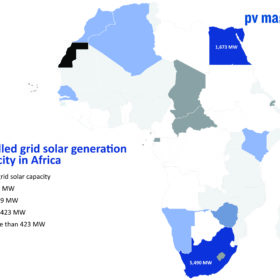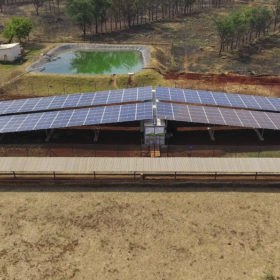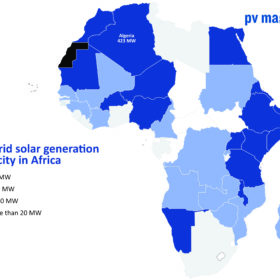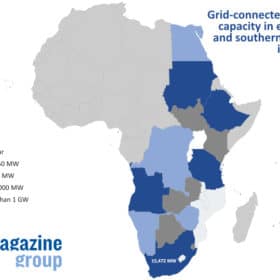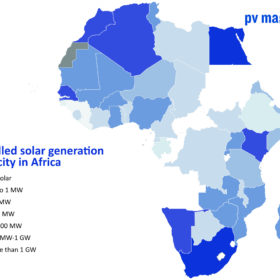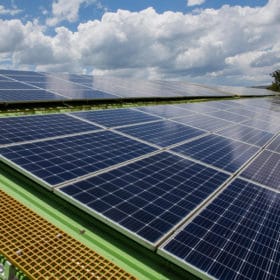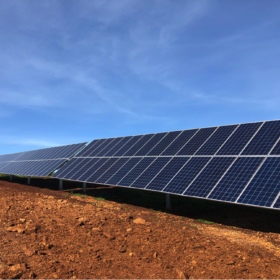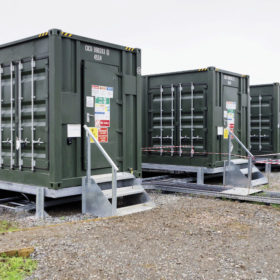A wave of big African solar is set to break
The Africa Solar Industry Association has recorded almost 2 GW of large scale project announcements since the start of last month with 18 countries planning new clean power infrastructure and including energy storage in the plants.
ARE, SIAZ sign MoU to accelerate universal energy access in Zambia with renewables
The Alliance for Rural Electrification (ARE) and the Solar Industry Association of Zambia (SIAZ) have signed a memorandum of understanding (MoU) to support the transition to renewable energy sources in Zambia. One of the goals is to create at least five million green jobs globally.
Rising hardware costs slow Covid recovery for off-grid solar sales
The global off-grid solar appliance market began an uneven recovery from the worst ravages of the global pandemic in the second half of last year, according to market body GOGLA, but more finance and policy support must be made available to have any chance of achieving universal electricity access this decade.
Solar and wind could provide half of 2040 power mix across 22 African nations
The International Renewable Energy Agency has combined energy infrastructure commitments across a huge swathe of the continent with hundreds of regional sites which offer rich solar and onshore wind potential, to determine what could be possible.
African green hydrogen could feed German and Japanese industry and water drought-stricken nations
Trade bodies the Africa Solar Industry Association and the African Hydrogen Partnership hosted a two-day virtual conference to discuss the role green hydrogen can play in economic growth across the continent–and how it could drive desalination in freshwater-starved coastal countries.
‘Solar can energize the East African recovery’
Patrik Huber, co-founder and managing director for East Africa at renewables leasing company Solarise Africa, has spoken to pv magazine about the company’s take on how the region can prime for a green recovery. Huber explained Solarise’s contribution to the recovery includes recent expansion into three new countries.
First PPA-linked solar park in Zambia
Zambia-based GreenCo Power is seeking independent power producers for the construction of a solar park with a capacity of up to 40 MW in the sub-Saharan country. The pilot project will be the first in taking advantage of new rules that liberalized the Zambian energy market by enabling bilateral power purchase agreements.
Crossboundary offers up its mini grids business model for African peers to benefit
The Kenyan financial services business has been developing rural mini grids across Africa and has announced plans to show its rivals how such networks can thrive, in a bid to accelerate access to electricity on the continent.
African utilities wary of threat from renewables
The rise of clean energy and prosumers, net metering and greenhouse gas regulation all figure among the bogeymen as far as national electric companies are concerned.
Kenyan government blamed for sluggish progress of solar
Two solar farms with 80 MW of generation capacity tendered in 2017 are being built and will be commissioned this year but another two, allocated at the same time, are no nearer construction. Kenya, however, has been touted as the site of Africa’s first wind-solar-storage hybrid project.
